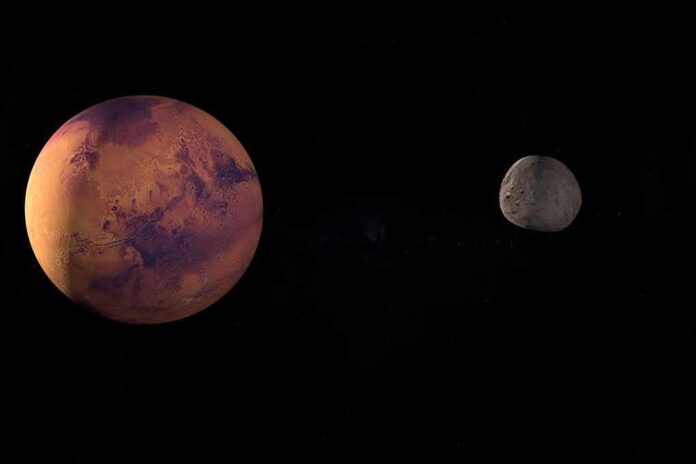The unexpected camaraderie between US and Russian space agencies continues to defy geopolitical tensions as they agree to extend cooperation on the International Space Station (ISS) until 2028.
Story Snapshot
- US and Russian space agencies agree to continue ISS cooperation until 2028.
- This marks the first direct meeting between the space chiefs since 2018.
- ISS remains a rare venue for US-Russia collaboration amidst broader geopolitical tensions.
- Agreement ensures stability for ongoing and future scientific research.
US and Russia’s Space Collaboration Defies Geopolitical Tensions
The heads of Russia’s space agency, Roscosmos, and NASA convened in the United States in July 2025. This landmark meeting, the first of its kind since 2018, resulted in a mutual agreement to extend their joint operations aboard the International Space Station (ISS) through 2028. Despite escalating geopolitical tensions, particularly following the Ukraine conflict, this decision underscores the technical and diplomatic resilience of the ISS partnership. The agreement was announced on July 31, 2025, marking a significant milestone in US-Russia relations in space.
The ISS, a collaborative project initiated in 1998, symbolizes post-Cold War cooperation. It includes contributions from the US, Russia, Europe, Japan, and Canada. The station has hosted humans continuously since 2000, serving as a hub for scientific research and international collaboration.
Historical Background and Current Developments
The current cooperation agreement traces its roots to the early days of the ISS. Despite the Ukraine conflict, which led to Western sanctions on Russia and a significant reduction in bilateral cooperation, the ISS partnership has endured. Russia and NASA maintained integrated crew arrangements, essential for the ISS’s technical operations. This includes Russian Progress vehicles providing crucial propulsion and reboosts.
In April 2023, Russia confirmed its support for ISS operations through 2028, even as its relationships with other Western countries remained strained. Other partners, including the European Space Agency (ESA), Japan (JAXA), and Canada (CSA), have committed to supporting ISS operations through 2030. This ongoing cooperation is vital for both scientific research and maintaining a continuous human presence in space.
Key Stakeholders and Their Interests
Roscosmos, led by Dmitry Bakanov, and NASA, under acting administrator Sean Duffy, are the primary organizations driving this cooperation. Their motivations include maintaining international prestige, securing funding, and ensuring a continued presence in space for their respective countries. The US and Russia are the main technical operators, with decision-making being consensus-based among the international partners.
American astronauts and Russian cosmonauts currently aboard the ISS, along with those training for future missions, are directly impacted by these decisions. The agreement ensures their safety and the continuity of scientific research, while also providing time for partners to develop commercial replacements for the ISS as its de-orbiting plans progress.
Implications and Expert Perspectives
Extending ISS operations through 2028 has both short-term and long-term implications. In the short term, it ensures the uninterrupted continuation of scientific experiments and the safety of current crews. In the long term, it provides a window for partners to transition to commercial space platforms and plan for the eventual de-orbiting of the ISS by 2030.
Space policy analysts emphasize the technical interdependence between US and Russian systems as a key factor in the continued cooperation. This collaboration, despite geopolitical challenges, sets a precedent for future international space partnerships. Experts view the ISS as a model for international collaboration, with some noting that its eventual retirement will test the ability of partners to transition smoothly to new platforms.
Sources:
Phys.org: Russian space chief says agreed with NASA on ISS cooperation until 2028
NASA: Partners Extend International Space Station for Benefit of Humanity
Ad Astra: How does the U.S.-Russia partnership work on the ISS?
France24: Russia’s Roscosmos, NASA agree to extend ISS
Military.com: Russian and US Space Chiefs Meet to Discuss Continued Cooperation











